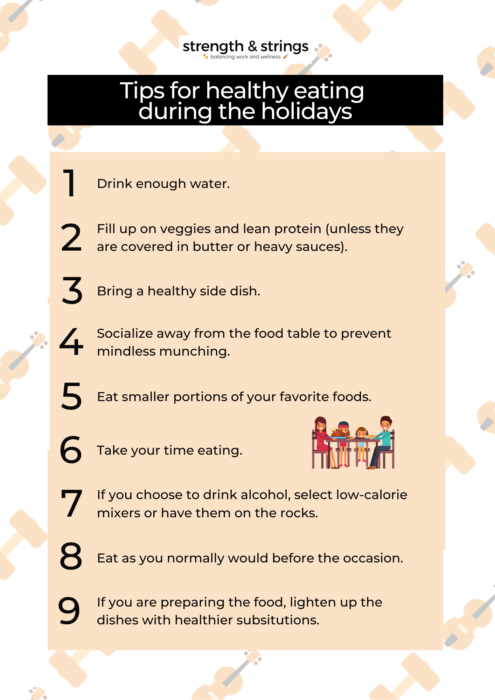
There are a variety of health benefits of exercise. It improves mood, sexual quality, and life expectancy. Regular exercise improves your physical ability and prevents you from gaining excessive weight. Exercise can help you lose weight and burn calories. If you are looking for a reason to exercise, this is the best option. Let's take a look at some of the most notable ones.
Exercise can increase endorphins which help reduce pain and instill a sense of well being. Exercise makes you feel better. It also boosts your energy levels and self-esteem. You can feel and look better. But the long-term health benefits of exercising are not quantifiable. That's why it's crucial to find an activity that you enjoy doing. Try starting small, and slowly increasing your time at the gym.

Studies have shown that regular exercise reduces the chance of developing many diseases like stroke and heart attack. You may even be able to prevent certain types of breast cancer. It can even increase your life expectancy. This will make it easier to be more productive and live a longer time. Exercise can improve your mood and health by reducing stress. This activity will make you feel more energetic and positive.
Exercise also relieves anxiety and depression. Even though it is not for everyone, exercising can help you live longer and feel better. Many exercises release endorphins that create a sense o well-being. This is essential for your body to function at its best. This will not only make it feel better, but also increase your quality of sleep.
In addition to physical benefits, exercise can improve mental health. It's proven that exercise can improve your mood. And if you suffer from depression, it can make you feel happier and more energetic. Regular exercise can help you live longer, feel better, and live longer. A medical professional may be able to give you more reasons to exercise. When it comes to your health, exercise will help you live a longer and healthier life.

Apart from its benefits for your physical health, exercising has mental benefits as well. It can help reduce your chances of developing diabetes and metabolic disorder, as well as improve your memory. It can boost your mood and decrease your chances of getting depressed. Depression patients often worry about losing memory so they should exercise regularly to feel better. It can improve their mood and lower their anxiety. Get moving! This will improve your mood and decrease your chances of getting these conditions.
FAQ
Which lifestyle is best for your health?
Healthy lifestyles include eating healthy food, regular exercise, good sleep, and avoiding stress. These are the keys to a healthy and long-lasting life.
Start small by changing your diet and exercising routine. Try walking for 30 minutes each day to lose weight. You can also take up dancing or swimming if you are looking to be more active. An online fitness program such as Strava or Fitbit that tracks your activity could be a good option.
What should I eat?
You should eat lots of vegetables and fruits. They are rich in vitamins that can strengthen your immune system. Also, fruits and vegetables are rich in fiber. This makes them filling as well as helping with digestion. At least five servings of fruits and vegetables should be consumed each day.
Water is essential for your body. Water helps flush toxins out of your body and makes you feel fuller between meals. Drink about eight glasses each day.
Eat whole grains instead of refined ones. Whole grains have all their nutrients intact, including B vitamins, iron, zinc, magnesium, calcium, and protein. Some nutrients have been removed from refined grains.
Sugary drinks should be avoided. Sugary drinks have empty calories and are a major contributor to obesity. Instead, drink water, milk, or unsweetened Tea.
Avoid fast food. Fast food has little nutritional value. It may taste great but it won't give you the energy you need to function properly. Use healthier options, such as soups, sandwiches, salads, and pasta.
Limit your alcohol consumption. You can reduce your intake of alcohol by limiting the amount of empty calories. Limit your consumption to no more than 2 alcoholic beverages per week
Reduce your consumption of red meat. Red meats are high-in saturated fat and cholesterol. Opt for lean cuts of beef, pork, lamb, chicken, fish, and turkey instead.
Which diet is best for me?
There are many factors that influence the best diet, including your gender, age, weight, health condition, lifestyle, and personal preferences. It is also important to think about how much energy you use during exercise and whether you like low-calorie foods.
Intermittent fasting might be an option for you if your goal is to lose weight. Intermittent fasting is a way to eat only certain meals during the day instead of three large meals. This method may work better than traditional diets which include daily calorie counts.
Studies have shown that intermittent fasting can improve insulin sensitivity and decrease inflammation. This could lead to improved blood sugar levels, and a lower risk of developing diabetes. Some research also suggests that intermittent fasting might promote fat loss, and improve overall body composition.
What is the difference between sugar and fat?
Fat is an energy source that comes directly from food. Sugar is a sweetener found in fruits, vegetables, and other foods. Both fats (and sugars) have the same calories. But, fats have more calories than sugars.
Fats are stored in your body and can cause obesity. They cause cholesterol buildup which can lead to strokes and heart attacks.
Sugars can be quickly absorbed by your body and give you instant energy. This causes blood glucose levels in the body to rise. High blood glucose levels can pose a danger because they increase the chance of developing type II Diabetes.
Statistics
- Extra virgin olive oil may benefit heart health, as people who consume it have a lower risk for dying from heart attacks and strokes according to some evidence (57Trusted Source (healthline.com)
- The Dietary Guidelines for Americans recommend keeping added sugar intake below 10% of your daily calorie intake, while the World Health Organization recommends slashing added sugars to 5% or less of your daily calories for optimal health (59Trusted (healthline.com)
- WHO recommends consuming less than 5% of total energy intake for additional health benefits. (who.int)
- According to the Physical Activity Guidelines for Americans, we should strive for at least 150 minutes of moderate intensity activity each week (54Trusted Source Smoking, harmful use of drugs, and alcohol abuse can all seriously negatively affect your health. (healthline.com)
External Links
How To
Here are 10 tips to help you live a healthy life
How to maintain a healthy lifestyle
Our fast-paced world means that we aren't getting enough sleep, don't eat enough, drink too much alcohol, and smoke too many cigarettes. We don’t take proper care of our bodies.
When you work full-time, it is difficult to maintain a healthy diet and exercise program. It becomes even harder if you are stressed out because your mind tells us that we cannot handle this situation anymore so we start feeling guilty and give up.
If you feel something is wrong with the body, it is probably. You should see a doctor and ask him/her what he/she thinks about your current condition. If there are no signs of something abnormal, stress from your job could be the cause.
Some people think that they are lucky because their jobs allow them to go to gym regularly or they have some friends who help them to keep fit. These people are truly lucky. These people don't have any difficulties. They have everything under control. I wish that everyone could be like them. Unfortunately, most of us don't know how to balance our work life and personal life. Bad habits can lead to heart disease, diabetes, and other diseases.
Here are some tips that might help you to improve your lifestyle:
-
You should get 7 hours of sleep per night minimum and 8 hours maximum. It includes sleeping in the correct positions and avoiding caffeine before bed. Caffeine blocks melatonin, which can make it difficult for you to fall asleep. Also, ensure your bedroom is darkened and clean. If you work late at night, make sure you have blackout curtains.
-
Get healthy - Start your day with a good breakfast. Avoid sugary products, fried foods, white breads, and processed food. Fruits, vegetables, whole grains and whole grains are good options for lunch. You should eat healthy afternoon snacks that are high in protein. These include nuts, seeds beans, legumes, fish, cheese, and dairy products. Avoid unhealthy snacks like chips, candies, cookies, cakes and sodas.
-
Get enough water. The majority of people don’t drink enough water. Water helps us burn more calories and maintains our skin's youthfulness. It also flushes toxins out of our bodies and improves our digestion. Aim to drink six glasses of fluids daily to lose weight more quickly. Checking the color of urine is a good way to gauge your hydration. A yellow urine color indicates that you are dehydrated. An orange urine color means that you are slightly dehydrated. Pink urine means that your hydration level is normal. Red urine means that you are overhydrated. Clear urine means that you're highly hydrated.
-
Exercise - Regular activity can help increase energy and decrease depression. Walking is an easy way to improve your mood. Even though walking looks simple, it requires effort and concentration. Walking requires your brain to be focused on the task at hand, and you need to breathe slowly and deeply. For between 100 and 150 calories, a 30 minute walk can be enough to burn about 100 to 150 calories. Slowly build up and start slow. Stretching after exercise is important to avoid injury.
-
Positive thinking is key to mental health. If we are positive, we create a happier environment in our minds. Negative thoughts can drain energy and cause anxiety. You can stay motivated by thinking about what you want to achieve. Break down the tasks into smaller steps if you feel overwhelmed by all the new tasks. You will fail occasionally, but you can always get up and try again.
-
Learn to say no - We often get so busy that we do not even realize how much time we waste doing unimportant things. It is important to learn to say No when you need to. It is not rude to say 'no'. Simply saying "No" does not mean you are rude. There are always other options to finish the job later. Be clear about your boundaries. Ask for help. This work can be delegated to someone else.
-
Take care of you body. Eat healthier foods to boost metabolism and shed extra weight. Avoid heavy and oily foods. They can increase cholesterol levels. Good advice is to eat three meals and 2 snacks each day. You should consume around 2000 - 2500 calories per day.
-
Meditation can be a great stress relief and can help reduce anxiety. Relax your mind by sitting still with your eyes closed. This exercise will give your mind clarity, which is very important in making decisions. Meditation regularly can make you happier and more calm.
-
Don't skip breakfast - Breakfast is the most important meal of the day. Skipping breakfast may lead to overeating during lunchtime. You don't have to wait until noon to enjoy a healthy breakfast. Eating breakfast increases your energy level and helps you to control your hunger.
-
Eat clean food - Food affects our moods more than we know. Avoid junk food, artificial ingredients and foods that are high in preservatives. These products keep your body acidic and trigger cravings. A variety of fruits and vegetables is rich in vitamins, minerals and other nutrients that can help improve overall health.